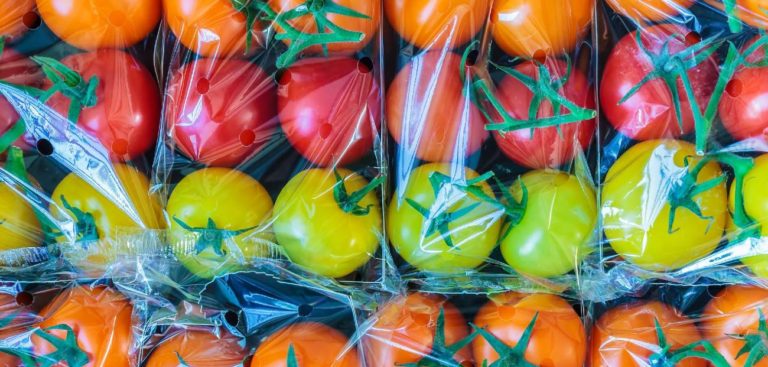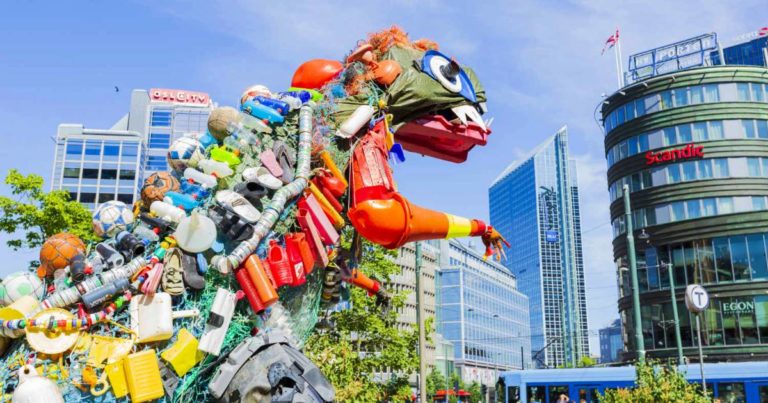Waste disposal is a crucial issue for the environment and the economy of Brazil. With billions of reais wasted annually due to the lack of adequate recycling, it is essential to understand where waste ends up and how we can improve our waste management system. In this post, we will discuss the different destinations of waste in Brazil, discuss the importance of recycling, and present strategies to optimize the process.

Landfills: The Despicable Reality
Landfills are places where waste is discarded in the open air without any environmental protection.
Features of Landfills:
- Pollution and Environmental Impacts: Landfills cause soil, air and water pollution, resulting in bad odors and the spread of diseases. Unwanted animals such as rats, cockroaches and flies are common in these places.
- Collectors' Work: In many cases, garbage collectors make a living from these places, collecting food and separating recyclable materials to sell. Although this work is informal and dangerous, its prohibition only makes the situation worse, leaving these workers without alternative sources of income.
Importance of Recycling:
- Recycling can reduce the amount of waste sent to landfills, helping to minimize pollution and improve the living conditions of waste pickers.
Controlled Landfill: A Step Forward
Controlled landfills are more organized places for the final disposal of waste.
Characteristics of Controlled Landfills:
- Coverage and Inspection: The waste is covered daily with soil, and the site is monitored to prevent the presence of waste pickers. This helps control pollution and environmental impacts.
- Waste Management: Although controlled landfills represent an improvement over dumps, more effective management is still needed to deal with the destination of waste.
Challenges:
- The amount of waste continues to grow, and the need for more sustainable solutions for waste disposal is increasingly evident.
Sanitary Landfills: Advanced Disposal System
Sanitary landfills are more advanced than dumps and controlled landfills, with a more structured waste management system.
Characteristics of Sanitary Landfills:
- Compressed Layers: The waste is deposited in compacted layers and covered with clay daily, which helps to prevent bad odors and the presence of insects.
- Use of Gases: The gases resulting from the decomposition of organic matter are collected and burned, and Brazil is beginning to use these gases to generate energy.
- Leachate Treatment: Leachate, the liquid resulting from decomposition, is drained and treated appropriately to avoid negative environmental impacts.
Benefits:
- Pollution Reduction: Proper management of landfills helps reduce pollution and improve waste control.
Incineration:
Incineration is a process where waste is burned to reduce its volume, but it presents significant challenges.
Incineration Features:
- Volume Reduction: Burning waste drastically reduces the volume of waste and neutralizes bacteria. However, this method can be polluting if the resulting gases are not treated properly.
- Energy Production: Incineration can be used to generate electricity, but it is an expensive and controversial process.
Challenges:
- Pollution and Cost: Incineration is expensive and can cause pollution, especially if there is no effective treatment of the emitted gases.
Sorting Centers and Recycling Plants
Sorting centers and recycling plants play a vital role in separating and processing recyclable materials.
Features of Recycling Plants:
- Separation of Materials: Recyclable materials are separated according to their type (paper, glass, metal, plastic, rubber) and sold to companies that promote recycling.
- Recycling Process: Although separation and recycling are essential, the company that does the sorting is usually not the same one that carries out the recycling process.
Importance of Recycling:
- Efficiency and Sustainability: Recycling plants help transform waste into new products, reducing the need for new resources and minimizing environmental impact.
Composting: Transforming Organic Waste
Composting is a natural way of recycling organic waste, transforming it into fertilizer.
Composting Features:
- Biological Process: Composting is a biological process that breaks down organic matter, such as food scraps and plant residues, into useful fertilizer for the soil.
- Environmental Benefits: Composting increases the lifespan of landfills, uses organic matter for agricultural use, recycles nutrients and eliminates pathogens that can be harmful to health.
Advantages of Composting:
- Waste Volume Reduction: Composting reduces the amount of waste that goes to landfills.
- Soil Improvement: The fertilizer produced improves soil characteristics and can be used for agriculture.
The fate of waste in Brazil is a complex issue that involves several management methods, from dumps and landfills to incineration and composting. Each method has its advantages and challenges, but recycling and composting are essential for more sustainable and efficient waste management. With the implementation of effective policies and raising public awareness about the recycling, we can significantly improve the disposal of waste and reduce the environmental impact.
What are you doing to ensure your waste is disposed of correctly? The answer to the question “Where does the garbage end up?” It can start with your own daily actions and choices. Adopting recycling practices and supporting sustainable initiatives can make a big difference in the future of our planet.
Check out other interesting facts about recycling clicking here.
Learn how to make art by recycling, Click here.




Thanks for helping me friend
we are together
with love Willian everton
I don't do anything, I feel like crap because of it. I don't lack willpower or ideas. I always do my best to save or reduce the waste I produce, but it's still not enough. Can you give me more tips or instructions on the subject?
Pedro, this inconvenience is already a positive reaction. Check out the Selective Collection category to see if any ideas come up that could be put into practice: http://setorreciclagem.com.br/category/coleta-seletiva